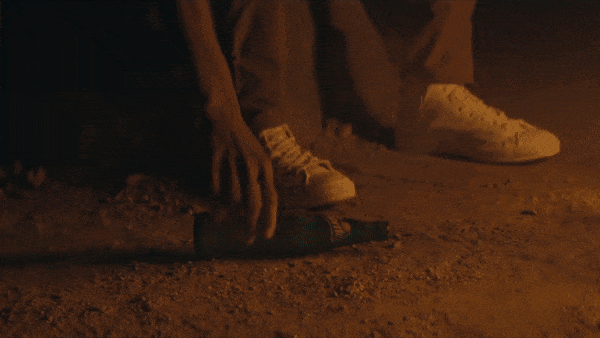Corporate partnerships with musicians are nothing new—cigarette companies have used music endorsements as far back as 1941.
But, just as love-song similes have become much less hackneyed over the ensuing decades, the face of brand-music partnerships has changed dramatically as well.
Business-first artists like Sean “Diddy” Combs exemplify this shift. In 2014, six years distant from his most recent album, a healthy serving of the $60 million he earned from ventures came from working closely with French vodka distiller Diageo. Diddy brought the luxury liquor Cîroc to his fans and split profits with the manufacturer, going as far as calling himself “Cîroc Obama.”
Now, free streaming services like Spotify and Pandora are making it more and more difficult for artists to make a living from royalties—the music sponsorship industry is set to pass $1.5 billion in 2017. Brands and bands are finding it necessary to collaborate much more closely than ever before.
“The best marketers today know that loyalty is in short supply and so they have to deliver experiences and emotions that tap right into people’s desires and aspirations. Those brands that successfully create emotional engagement are the ones that succeed in turning customers into fans,” Olivier Robert-Murphy, global head of new business at Universal Music Group, said in last year’s “IFPI Global Music Report.”
It takes more than just a winning smile and slow-motion footage to sell these days, and just this year, brands like Sprite, Chipotle and Converse are proving themselves amply prepared for the task.
Converse Rubber Tracks
With its Rubber Tracks campaign, Converse finds itself as one of the vanguards of this trend. Ironically enough, the most modern implementation of the musician-brand partnership has been a reversion to a medieval patronage system.
The idea was simple enough. Converse, with its extensive clout, reach and most importantly budget, set up recording studios in 18 different cities around the world, and offers free studio time to up-and-coming artists. Musicians can hand over limited rights to their recorded songs to allow the brand to publish them on their website and social media, and the company hires full-time sound engineers to work with artists in the studio. But otherwise, Converse keeps its hands to itself and lets the music do the talking (or singing).
The strength of the Rubber Tracks campaign lies not just in its simplicity, but its necessity. As the streaming model has choked album sales and squeezed revenues for modestly successful artists, major labels have invested heavily in developing already-known bands and producing smash-hit singles, leaving many small or experimental artists out in the cold. Converse has stepped in where the music establishment has failed, and in the process is building genuine goodwill among a younger crowd—no mean feat.

RZA And Chipotle: Savor.wavs
Scoring points for sheer unorthodoxy, Chipotle worked with rap legend RZA to cook up 51 different beats to represent their 51 “real ingredients,” from pizzicato violins representing bell peppers to a lonely trumpet riff to symbolize distilled vinegar. Chipotle then made the samples available to the public with an announcement video featuring hand-drawn animation and a somewhat bored-looking RZA, but not before passing them along to artists like GRiZ, AWOLNATION and Wu-Tang Clan to remix.
Despite RZA lending his name and talent to the project, it’s clear that Chipotle maintained creative control. “Tastes good . . . feels good” is the first line in the Wu Tang remix, and “all the good things come together” features prominently on the hook.
Given the call to the public to mix the samples themselves and get a free coupon, the musician partnerships are just one arm of a consumer campaign rather than an attempt to build a lasting relationship with any of the artists themselves. In any case, like with their “The Scarecrow” short film, Chipotle is seeking to garner brand engagement through noteworthy executions, using music as another chance to turn heads and earn press.

OK Go And Morton Salt
OK Go’s “The One Moment” stands at the opposite end of the spectrum from Chipotle’s starkly controlled content—the creative freedom stands at the opposite side of the brand-musician relationship.
This activation, filmed in slow motion over 4.2 seconds, links to Morton Salt’s “Walk Her Walk” water crisis campaign, but the song speaks about clinging to individual moments rather than making a difference, and the video includes no reference to salt or their cause.

Vince Staples And Sprite
Up-and-comer Vince Staples’ critically acclaimed track “Norf Norf” begins with the line, “Bitch you thirsty, please grab a Sprite,” and thus began the whirlwind romance.
Most recently, in connection with their “Summer Sprite Cold Lyrics Series,” the soft-drink brand produced the music video for “Rain Come Down,” the first time they’ve ever directly financed an artist’s music. The video ends with Staples, sitting woodenly in a diner booth, sipping from a bottle of Sprite like a Disneyland marionette. Additionally, he appears in a 30-second TV spot, in which he apathetically acknowledges soda-ad tropes.
Staples describes the union as a “fair and honest partnership,” adding, “they’re not trying to be anything other than Sprite.” Just so, Staples isn’t trying to be anything other than himself either, and the fact that both parties aren’t trying to oversell either themselves or each other adds an air of authenticity that builds trust in both.


